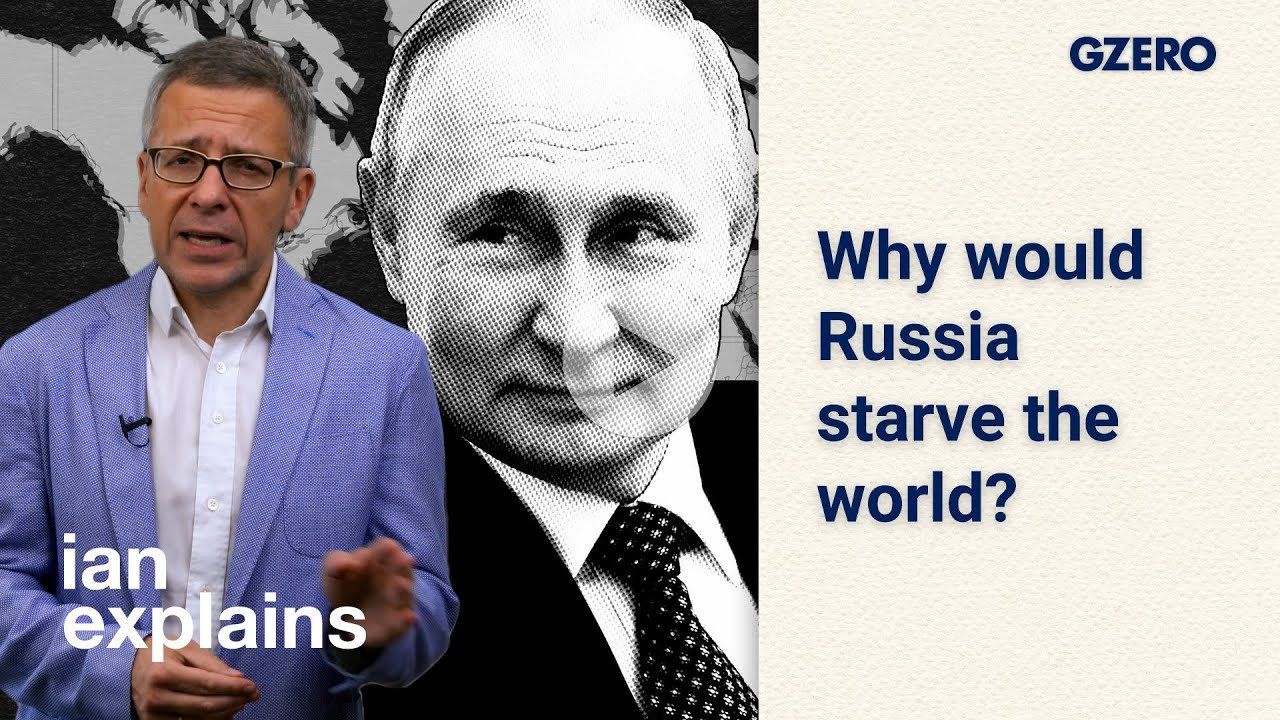Ian Explains
Ian Explains: Why is Russia trying to starve the world?

Ian Explains: Why is Russia trying to starve the world? | GZERO World with Ian Bremmer

Why is Russia trying to starve the world?
Nearly a year-and-a-half into its invasion of Ukraine—after the massacre of civilians in the Kyiv suburb of Bucha, after the indiscriminate shelling of Europe’s largest nuclear plant in Zaporizhzhia, and after the torture of countless Ukrainian POWs—Moscow’s latest move may be its cruelest so far.
In July, Russia pulled out of a landmark wartime deal, brokered by Turkey and the United Nations, that had allowed for 33 million tons of food to flow from Ukraine to countries in Africa, the Middle East and Asia. And soon after announcing their withdrawal from the Black Sea Grain Initiative, Russian forces engaged in strikes against the port of Odessa, destroying substantial grain stocks while also inadvertently damaging the Chinese consulate there (oops).
So why is it in Moscow’s interest to spike global food prices? What does it have to gain from exacerbating hunger in the Global South? Many of the African nations likely to be hardest hit, like Ethiopia, have taken pains to remain neutral in the Ukraine war.
Maybe Putin is losing patience.
For more on the Russia Ukraine war, watch the upcoming episode of GZERO World with Ian Bremmer on US public television and at gzeromedia.com/gzeroworld.
In this Quick Take, Ian Bremmer addresses the killing of Alex Pretti at a protest in Minneapolis, calling it “a tipping point” in America’s increasingly volatile politics.
Who decides the boundaries for artificial intelligence, and how do governments ensure public trust? Speaking at the 2026 World Economic Forum in Davos, Arancha González Laya, Dean of the Paris School of International Affairs and former Foreign Minister of Spain, emphasized the importance of clear regulations to maintain trust in technology.
Will AI change the balance of power in the world? At the 2026 World Economic Forum in Davos, Ian Bremmer addresses how artificial intelligence could redefine global politics, human behavior, and societal stability.
Ian Bremmer sits down with Finland’s President Alexander Stubb and the IMF’s Kristalina Georgieva on the sidelines of the World Economic Forum to discuss President Trump’s Greenland threats, the state of the global economy, and the future of the transatlantic relationship.